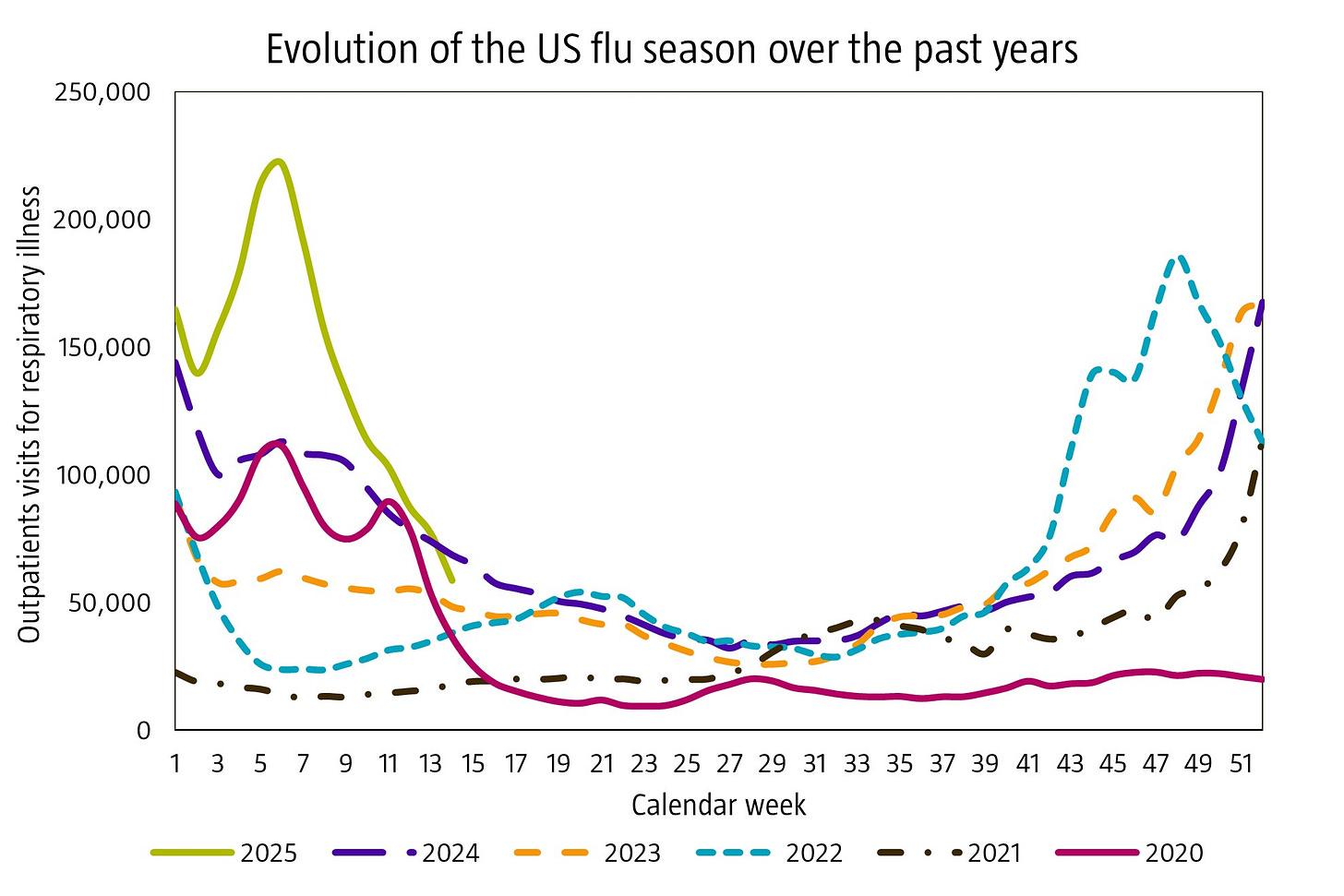Under the weather
During the winter of 2024/2025, the US experienced its first ‘high severity’ flu season in seven years. Several factors can influence the severity of a flu season, particularly the dominant influenza strains and vaccination rates. Although recent weeks have seen a decline in medical visits for respiratory illnesses compared to previous years, the CDC estimates that since October 2024, at least 46 million individuals in the US have contracted the flu. Many of these individuals likely turned to over-the-counter (OTC) medications to alleviate common flu symptoms such as fever, headache, and cough. The consumer health category, which includes OTC drugs, oral health products, as well as vitamins, minerals, and supplements, has been around for multiple decades and is dominated by a few major companies. Tylenol, a branded analgesic, was introduced in 1955 and initially targeted parents with sick children using the slogan “for little hotheads.” Over the years, these brands have become trusted household names and, due to the therapeutic nature of their products, often enjoy high pricing power. While private label products are also present in the category, their market share has stagnated, indicating strong consumer loyalty to established brands. Contrary to common belief, consumer health brands will not immediately benefit from this year’s severe flu season. These companies ship their products to retailers in the early fall, based on average flu season predictions. As a result, retailer inventories are likely to be depleted, leading to a boosted sell-in during the third quarter.
Source: US Centers for Disease Control and Prevention, April 2025.




